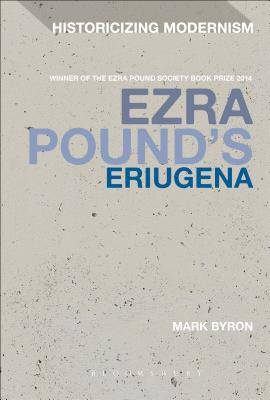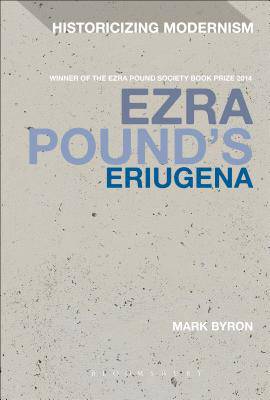
Bedankt voor het vertrouwen het afgelopen jaar! Om jou te bedanken bieden we GRATIS verzending (in België) aan op alles gedurende de hele maand januari.
- Afhalen na 1 uur in een winkel met voorraad
- In januari gratis thuislevering in België
- Ruim aanbod met 7 miljoen producten
Bedankt voor het vertrouwen het afgelopen jaar! Om jou te bedanken bieden we GRATIS verzending (in België) aan op alles gedurende de hele maand januari.
- Afhalen na 1 uur in een winkel met voorraad
- In januari gratis thuislevering in België
- Ruim aanbod met 7 miljoen producten
Zoeken
€ 88,45
+ 176 punten
Uitvoering
Omschrijving
Winner of the Ezra Pound Society Book Prize 2014
Ezra Pound's sustained use of ancient and medieval philosophical sources, particularly those within the Neoplatonic tradition, is well known. Yet the specific influence of the ninth-century theologian Johannes Scottus Eriugena on Pound's poetry and prose has received limited scholarly attention. Pound developed detailed plans to publish a commentary on Eriugena alongside his translations of two of the books of Confucianism, plans that ultimately went unrealised. Drawing on unpublished notes, drafts and manuscripts amongst the Ezra Pound papers held at Yale University, this book investigates the pivotal role of Eriugena in Pound's thought and, perhaps surprisingly, in his deployment of non-Western philosophical traditions.
Ezra Pound's sustained use of ancient and medieval philosophical sources, particularly those within the Neoplatonic tradition, is well known. Yet the specific influence of the ninth-century theologian Johannes Scottus Eriugena on Pound's poetry and prose has received limited scholarly attention. Pound developed detailed plans to publish a commentary on Eriugena alongside his translations of two of the books of Confucianism, plans that ultimately went unrealised. Drawing on unpublished notes, drafts and manuscripts amongst the Ezra Pound papers held at Yale University, this book investigates the pivotal role of Eriugena in Pound's thought and, perhaps surprisingly, in his deployment of non-Western philosophical traditions.
Specificaties
Betrokkenen
- Auteur(s):
- Uitgeverij:
Inhoud
- Aantal bladzijden:
- 312
- Taal:
- Engels
- Reeks:
Eigenschappen
- Productcode (EAN):
- 9781474275644
- Verschijningsdatum:
- 25/02/2016
- Uitvoering:
- Paperback
- Formaat:
- Trade paperback (VS)
- Afmetingen:
- 156 mm x 234 mm
- Gewicht:
- 439 g

Alleen bij Standaard Boekhandel
+ 176 punten op je klantenkaart van Standaard Boekhandel
Beoordelingen
We publiceren alleen reviews die voldoen aan de voorwaarden voor reviews. Bekijk onze voorwaarden voor reviews.









